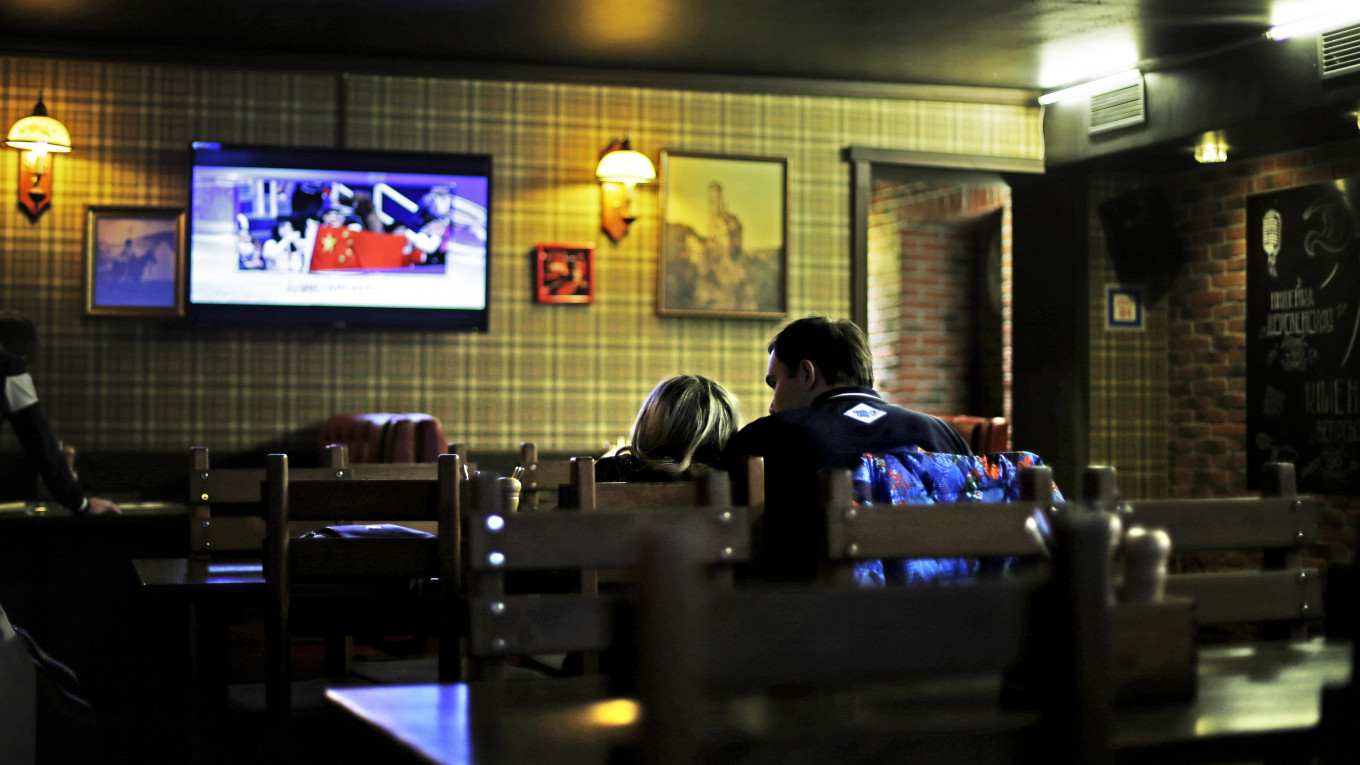If you watch much Russian television, you’re no doubt aware of how wildly popular political talk shows have become in recent years. The recipe for success has been fairly simple: invite animated guests who are sure to get into fights. In order to ensure heated arguments, Russian talk shows often feature token foreign experts meant to represent political views common in the United States, Europe, and Ukraine — views that are often deeply unpopular in Russia.
These individuals are inevitably outmatched and shouted down by their Russian costars, and sometimes they’re even smacked around or ejected from the stage, after spouting something simply intolerable. Show after show, Russian TV programs recycle many of the same helpless foreigners.
Last week, writing for the website Ruposters, columnist Mikhail Shakhov reviewed Russian television’s most famous “whipping boys.” The Moscow Times summarizes that list below.
Vyacheslav Kovtun

Vyacheslav Kovtun is punched, shoved, and pranked perhaps more than anyone in the world of Russian political talk shows. The director of “Expert,” a think tank based in Kiev, and a presidium member of the Liberal Party of Ukraine, Kovtun says with almost every TV appearance that he faces a hostile environment on Russia’s airwaves. Nevertheless, he keeps coming back for more.
The most infamous incident with Kovtun on television was last spring, when he offended Yuri Kot, a member of a pro-separatist group, during a broadcast of “Protsess” on the Zvezda channel. Kot thought Kovtun had threatened his son, who currently lives in Ukraine, so he crossed the stage and punched Kovtun in the head several times.
This wasn’t even the first time someone attacked Kovtun on television over comments about children. Prior to the fight with Kot, former Ukrainian lawmaker Volodymyr Oliynyk raised his fists against Kovtun on an episode of Vladimir Solovyov’s Sunday program, when he didn’t like Kovtun’s facial expression during a conversation about a seven-month-old baby dying of starvation in Mariupol.
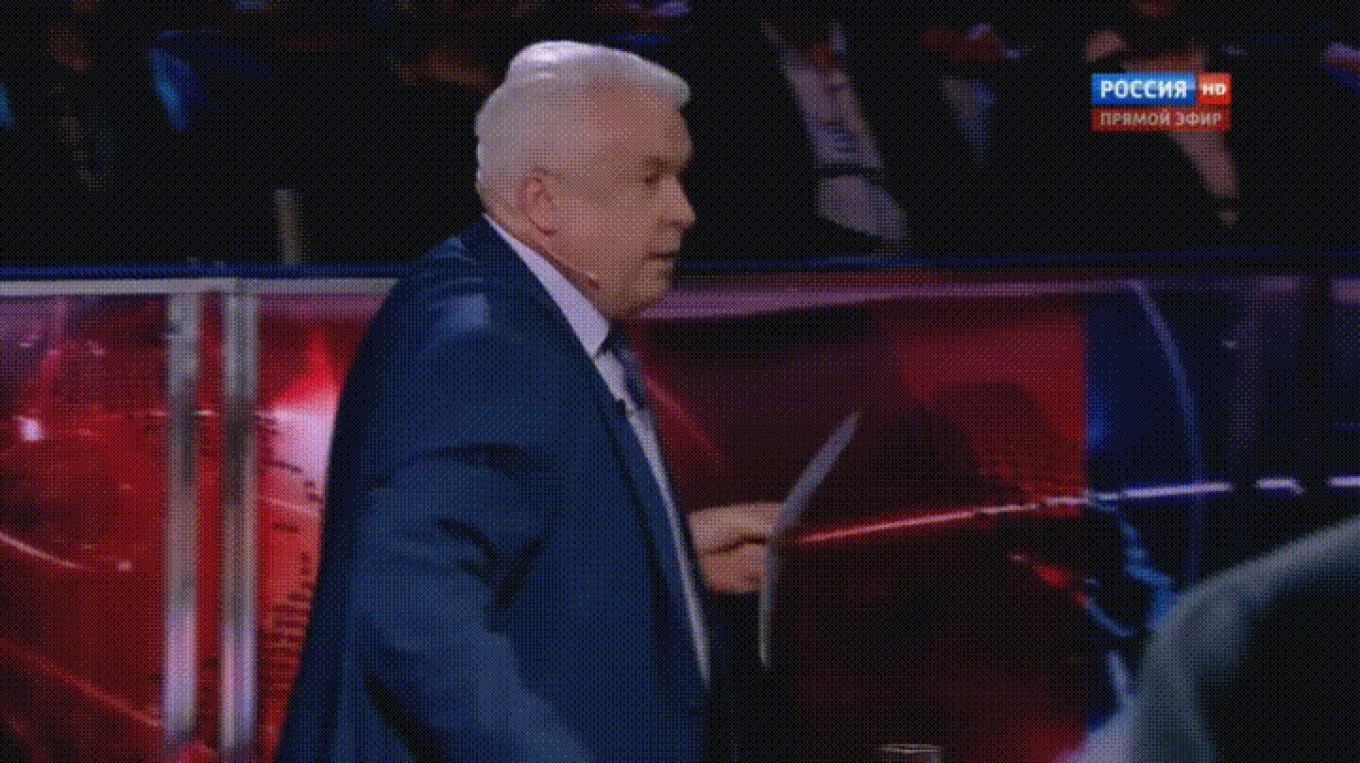
In another incident, a man carrying a Novorossiya flag threw a cake at Kovtun’s face outside the Ostankino television studios. Vladimir Solovyov denounced the attack and called for criminal prosecution, and the SERB nationalist movement later took credit for the attack.
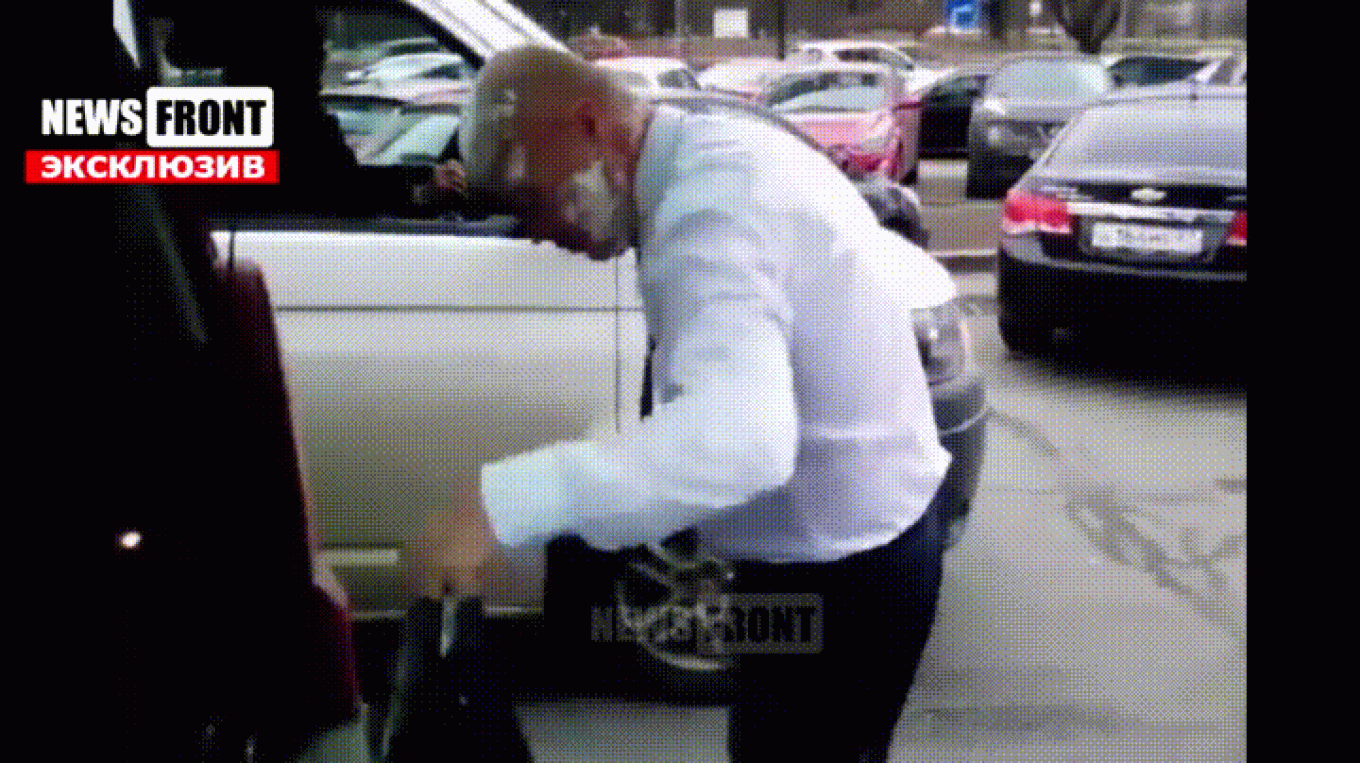
The most recent attack on Kovtun was last December, and it occurred off camera in the dressing room at Pervyi Kanal before an episode of the show “Vremya Pokazhet.” Alexander Borodai, one of the founders of the pro-Russian separatist “republics” in Ukraine, reportedly walked up to Kovtun and punched him.
Jakub Korejba
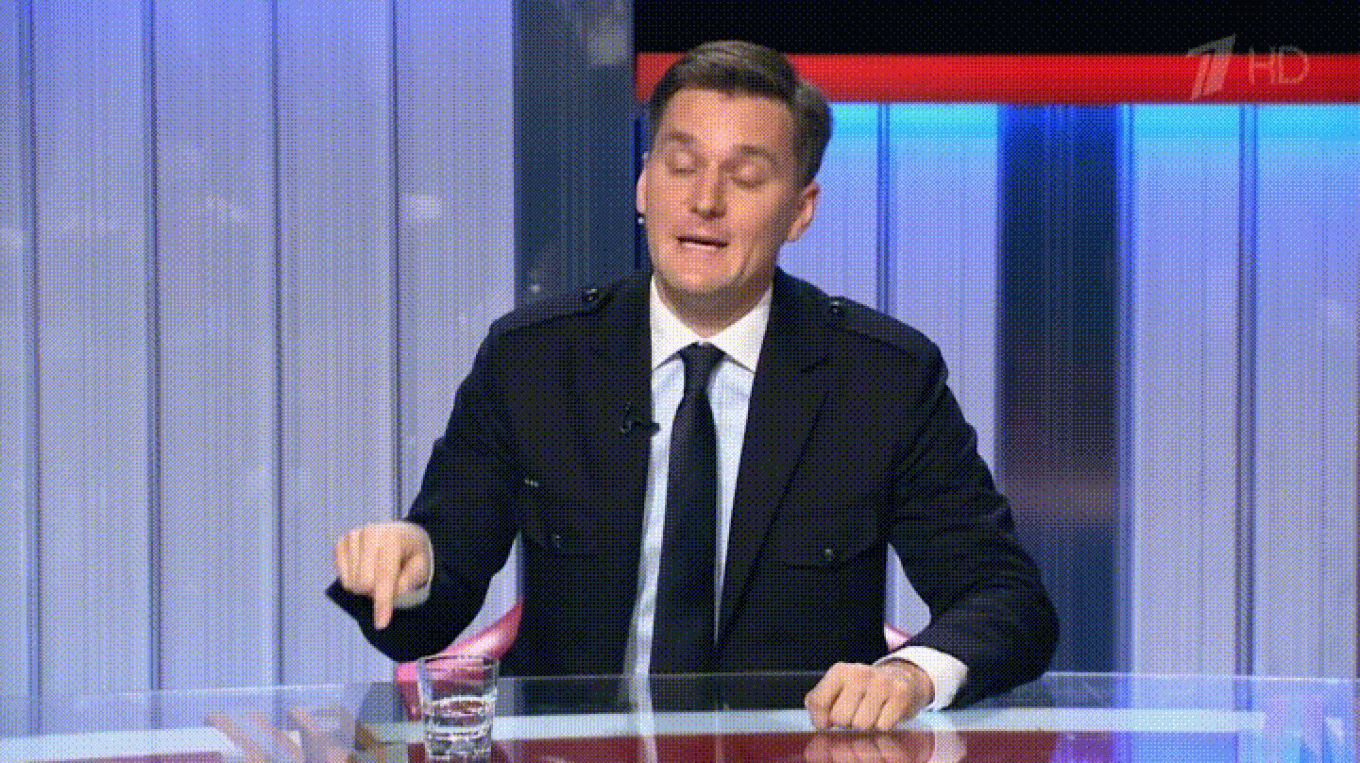
Known on Russian television as one of the most prominent “Russophobes” allowed on air, Polish publicist and former MGIMO researcher Jakub Korejba is often invited on shows to blame Russia for all the world’s wrongs.
One of Korejba’s claims to fame is his feud with Russian political analyst and patriotic activist Sergei Kurginyan, who walked off stage during a recent show where Korejba accused Russians of “clinging to the past” because their present and future prospects are so miserable.
Korejba’s celebrity in Russia follows a fall from grace back home, however. He lost his job at Newsweek in the summer of 2014, after becoming a regular columnist in the Russian media, where he published a controversial article titled “Sabotage Against Ukraine: the Polish Footprint,” accusing Poland of helping to overthrow the Yanukovych regime.
Sergei Zaporozhsky
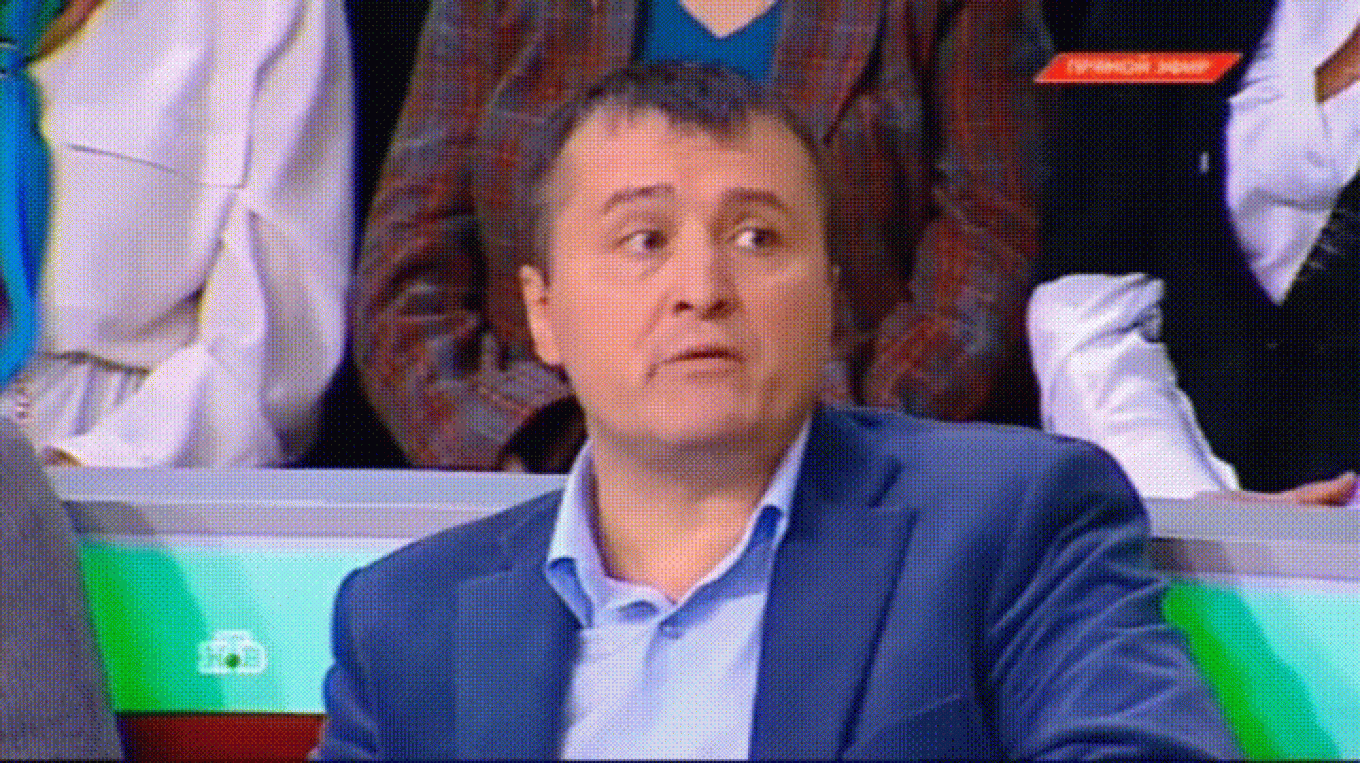
Calling himself a businessman and a political analyst, Zaporozhsky (whose real surname is Kutsenko) is a Russian citizen best known in Ukraine as the man behind the Twitter account “Bandera Soccer,” where he regularly mocks Russia and champions its less friendly neighbors.
Zaporozhsky likes to clown around. On Facebook, he describes his profession as “president of Ukraine from 2024 to 2034.”
Last September, Zaporozhsky made headlines when Andrei Norkin ejected him from his show’s set during an episode of “Mesto Vstrechi” on NTV, after Zaporozhsky accused him of spreading false information about the downing of Malaysia Airlines Flight 17. Norkin, a journalist with more than 26 years of experience, later lamented publicly that he hadn’t “slugged” Zaporozhsky.
Oleksiy Honcharenko
The son of a former mayor of Odessa and a sitting deputy in the Verkhovna Rada, Honcharenko established his infamy in Russia in May 2014, when he went on the Ukrainian TV show “Shuster Live” after the deadly fire at Odessa’s Trade Unions House and declared, “We cleansed Kulikovo Field of separatists.”
Honcharenko doesn’t appear on Russian television all that often, but when he does, you’re guaranteed a lot of shouting and grandstanding.
In March 2015, Honcharenko nearly caused a diplomatic scandal when Moscow police detained him at a memorial march honoring Boris Nemtsov, reportedly for wearing a shirt bearing a political message (in violation of the city’s permit for the event). He was ultimately freed without charges.
Honcharenko also made enemies in Moscow for bestowing honorary awards on the Turkish pilots who shot down a Russian military jet in November 2015.
Michael Bohm
Of all the foreigners regularly invited to appear on Russian talk shows, nobody takes a beating like Michael Bohm, who’s so good-natured about the cruel process that he’s become a favorite guest among hosts and viewers alike.
Sergey Aksyonov, the prime minister of Crimea, once yelled at Bohm on television, saying he “couldn't understand what people like this are doing on Russian television.” Bohm just smiled back.
A former editor at The Moscow Times, Bohm has a reputation on TV for repeating Russian proverbs, often in amusingly inappropriate ways. Almost two decades ago, he came to Moscow to work in the insurance business, which he later abandoned to be a journalist. He’s even taught courses in journalism at the Moscow State Institute of International Relations.
No stranger to accusations that he’s used on Russian television as a “whipping boy,” Bohm says he prefers to think of his appearances as something closer to public diplomacy.
Pavlo Zhovnirenko

A political analyst and a think tank scholar, Pavlo Zhovnirenko is another Ukrainian talking head frequently invited onto Russian TV, where he regularly walks off the set when he objects to the show’s content or feels he’s being ignored by the host.
Zhovnirenko first performed this stunt in April 2016, when he stormed off the set of “Mesto Vstrechi” on NTV, after complaining that he wasn’t getting the attention he deserved.
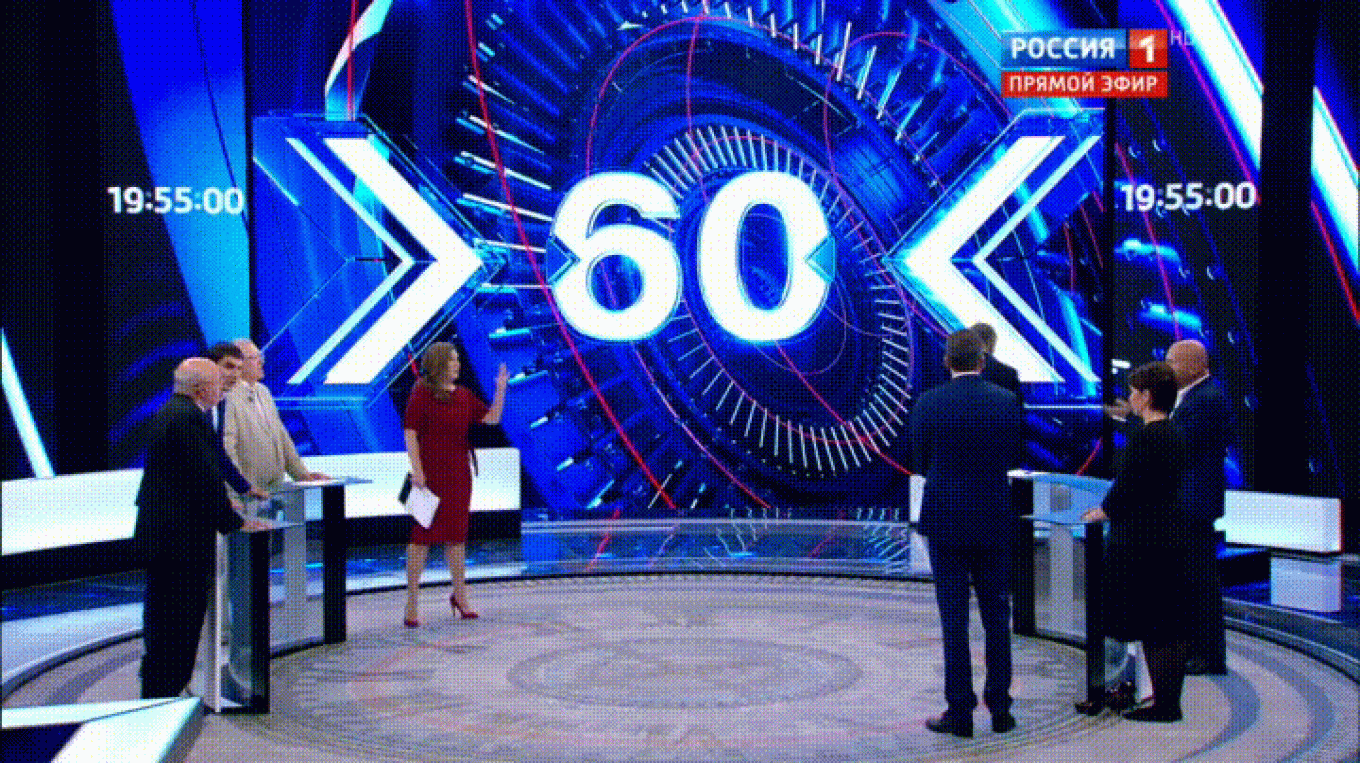
Six months later, while appearing on Pervyik Kanal’s show “60 Minut,” he walked off, again. This time, he didn’t stick around to grandstand on his way out.
Jiri Just
Czech journalist Jiri Just is one of the few “whipping boys” on Russian television who openly acknowledges that he’s invited on talk shows to be a punching bag for patriots.
“Of course, I understand that I’m there as a whipping boy,” he said in an interview in March 2015. “I understand that even with my presence alone I’m to some extent supporting the propaganda of Russian television. But I go on these talk shows so people know there are other points of view.”
Just has maintained a reputation for showing respect to his fellow guests on Russian television, which has helped him avoid any serious scuffles on TV.
Olesya Yakhno
The wife of famous political analyst Stanislav Belkovsky, Olesya Yakhno is a special correspondent for Ukraine’s official parliamentary newspaper and the director of a Ukrainian think tank. One of Russian television’s few “whipping girls,” Yakhno often serves as “the face of Ukraine” on talk shows in Russia.
Leonid Gozman
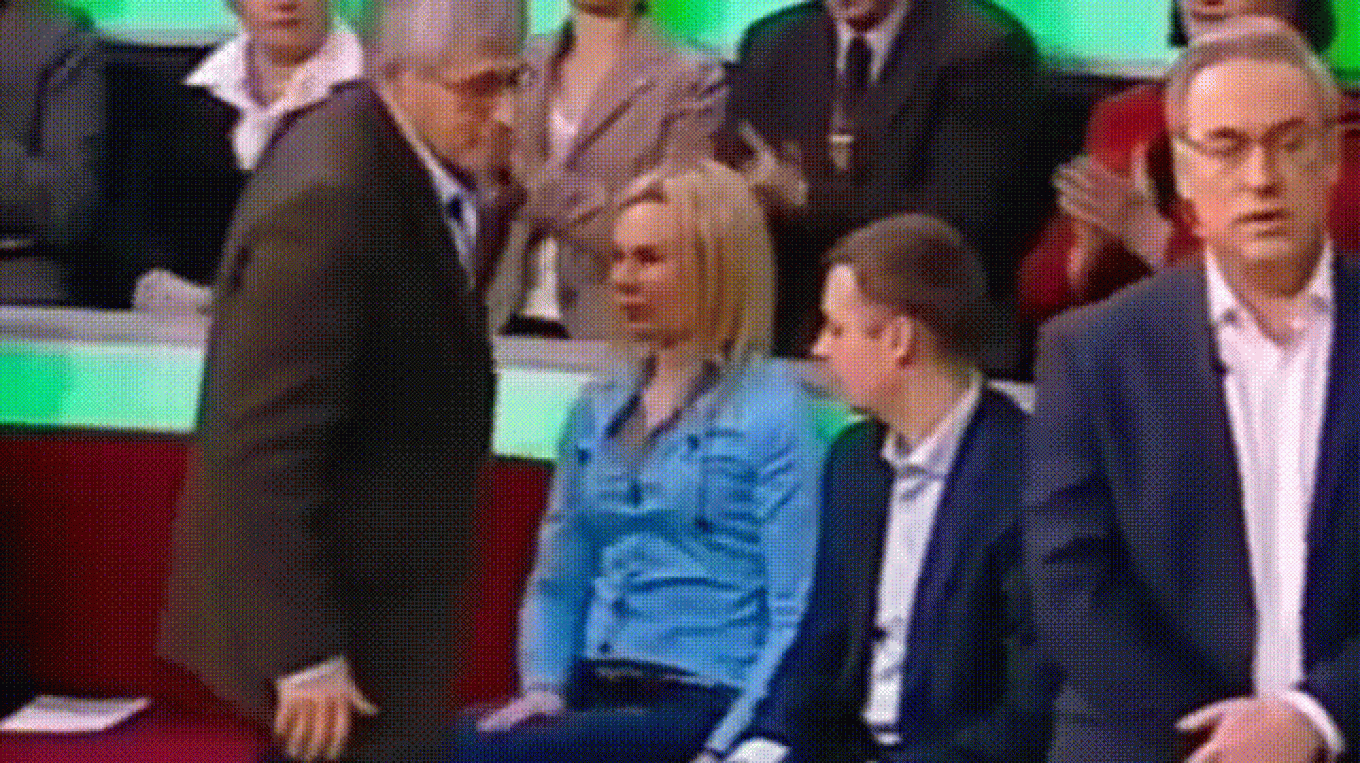
Leonid Gozman might as well have been engineered in a laboratory to serve as a token liberal on Russian TV. An ally of Anatoly Chubais, who for millions personifies Russia’s corrupt privatizations in the 1990s, and a member of several failed opposition political parties, Gozman has been appearing on Russian talk shows for years.
Gozman is regularly subjected to abuse on stage, and he’s admitted openly in interviews that he doesn’t expect to persuade anyone of his views. He justifies his participation on Russian television by saying that someone has to remind liberals who watch TV that they aren’t alone in the country.
Nobody has ever punched or shoved Gozman during a broadcast, but last December he did get up and walk off stage, à la Zhovnirenko, after enduring a two-minute excoriation by NTV’s Andrei Norkin.
Boris Nadezhdin
A former State Duma deputy and a fellow member of one of Leonid Gozman’s old political parties, Boris Nadezhdin is another token liberal frequently invited onto political talk shows.
His TV celebrity wasn’t enough, however, to win him a seat in the current Duma, despite his declarations that he’s merely a moderate who recognizes Russia’s “right to Crimea” and only criticizes Vladimir Putin on economic issues. Despite these positions, Nadezhdin often defends Ukraine in political debates.
Tomasz Maciejczuk
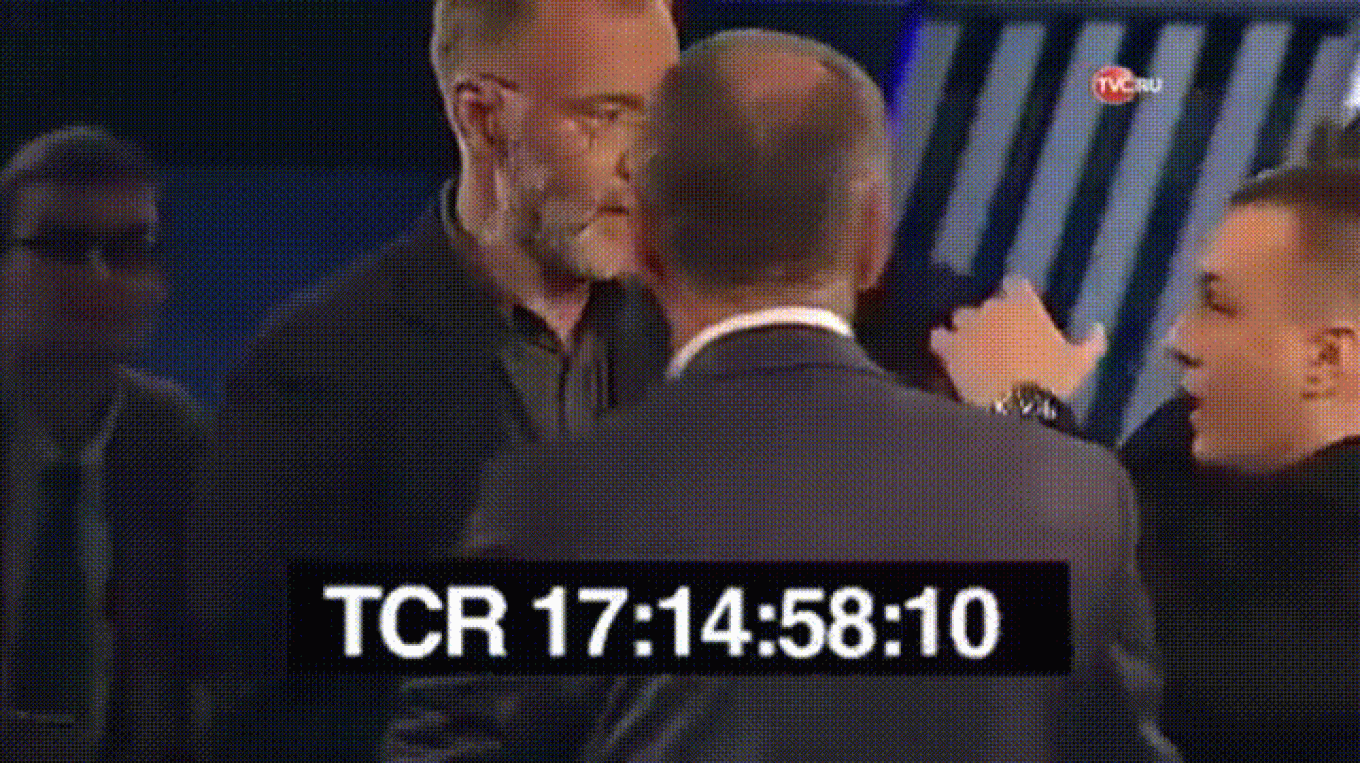
Tomasz Maciejczuk has become an inescapable presence on Russian political talk shows, making headlines last November when he was punched in the face for telling a debate panel, “Ukrainians want to live like normal people, not in s**t, like you [in Russia].” The blow came from Ihor Markov, a former Ukrainian lawmaker who served briefly in Ukraine’s parliament before the overthrow of the Yanukovych regime.
Maciejczuk says he became a journalist thanks to the Maidan Revolution, and he spent significant time delivering humanitarian supplies first to demonstrators in Kiev and then to volunteer troops in eastern Ukraine.
Later, he says he witnessed the cruelty of Ukrainian neo-Nazis and changed his political views. Maciejczuk’s reputation in Kiev reportedly suffered after he published a story in the Polish press about Nazis fighting alongside Ukrainian troops, and he didn’t gain any popularity after he accused the Ukrainian government of trying to hide a photo of a neo-Nazi soldier at an art exhibition dedicated to the “heroes” of Kiev’s “Anti-Terrorist Operation.”
Though he vociferously defends Kiev against Russian aggression, Maciejczuk is reportedly barred from entering Ukraine. His followers on social media supposedly convinced him that he should take his message to Russian television, and last October he relocated to Moscow, where he’s been a regular TV presence ever since.
Andrei Okara
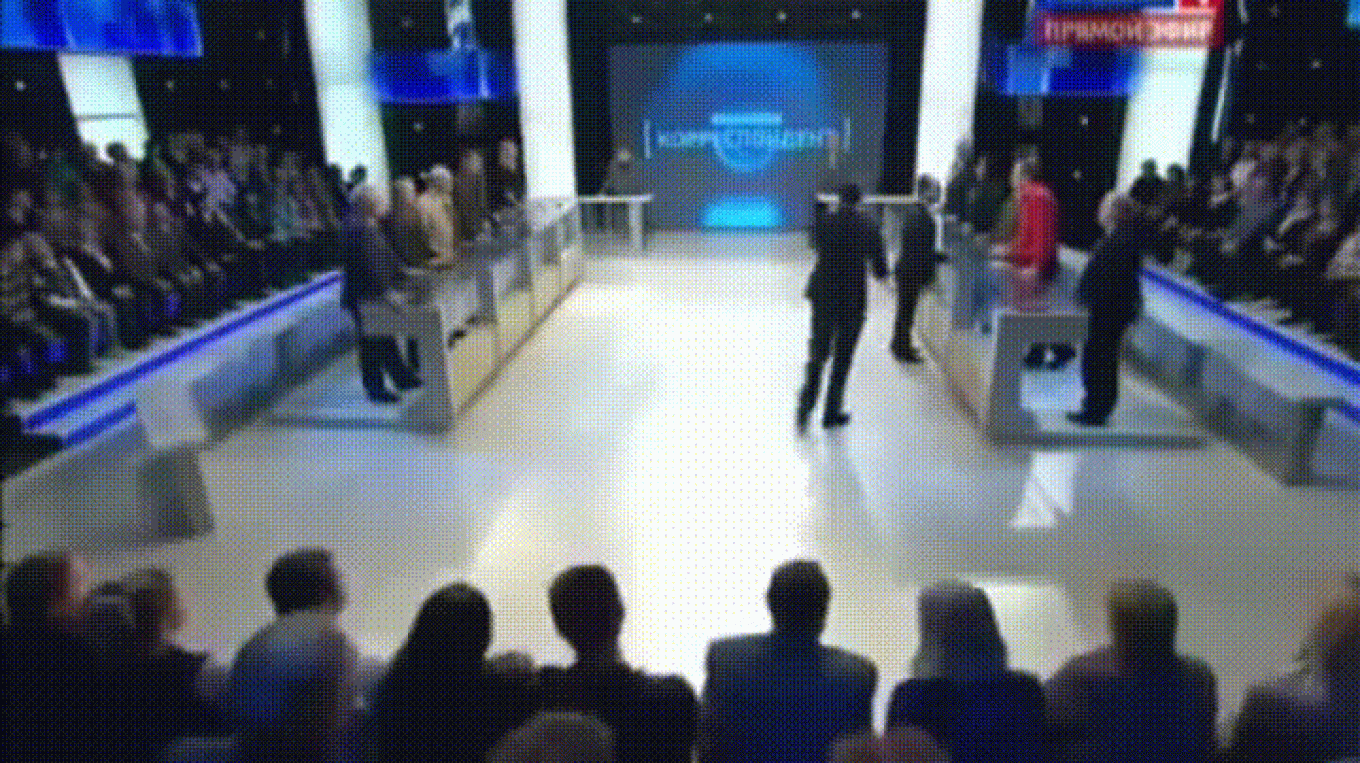
One of Vyacheslav Kovtun’s closest allies, political analyst Andrei Okara is a complicated man who’s been on both sides of the Ukraine debate.
Born and raised in Moscow, but ethnically Ukrainian, Okara has written extensively about Russian conservatism in the 20th century and repeatedly criticized Ukraine, going so far as to deny its right to exist as a country. According to some reports, he was even deported from Ukraine in 2015.
On television, however, Okara has played the role of Ukrainophile, defending Kiev’s actions against pro-Russian separatists, which often provokes a flood of insults from other guests. Once, in 2014, like so many of his token TV brothers, he came to blows on a talk show, fighting briefly with Konstantin Dolgov, a nationalist leader at the People’s Front of Novorossiya.
A Message from The Moscow Times:
Dear readers,
We are facing unprecedented challenges. Russia's Prosecutor General's Office has designated The Moscow Times as an "undesirable" organization, criminalizing our work and putting our staff at risk of prosecution. This follows our earlier unjust labeling as a "foreign agent."
These actions are direct attempts to silence independent journalism in Russia. The authorities claim our work "discredits the decisions of the Russian leadership." We see things differently: we strive to provide accurate, unbiased reporting on Russia.
We, the journalists of The Moscow Times, refuse to be silenced. But to continue our work, we need your help.
Your support, no matter how small, makes a world of difference. If you can, please support us monthly starting from just $2. It's quick to set up, and every contribution makes a significant impact.
By supporting The Moscow Times, you're defending open, independent journalism in the face of repression. Thank you for standing with us.
Remind me later.


